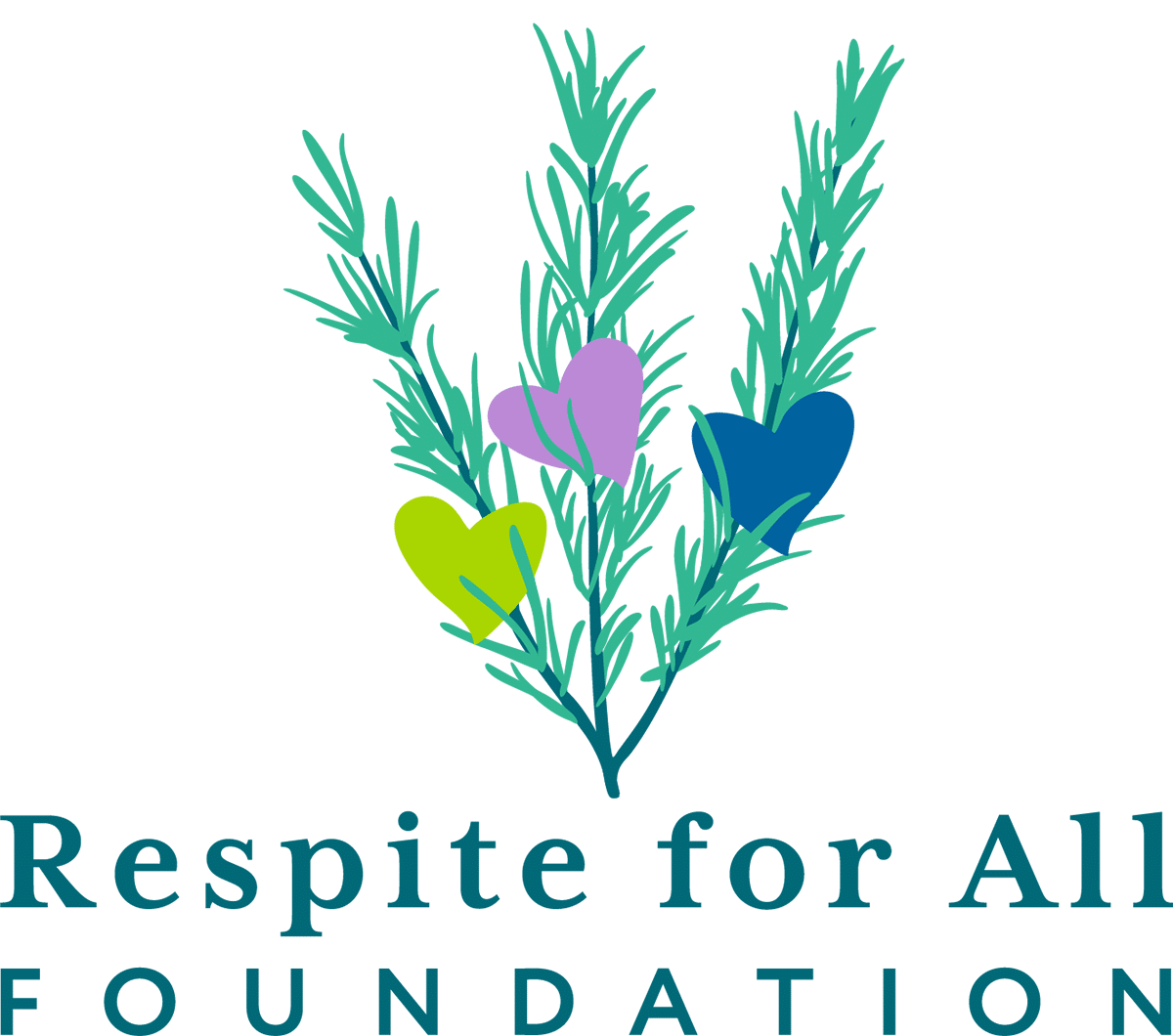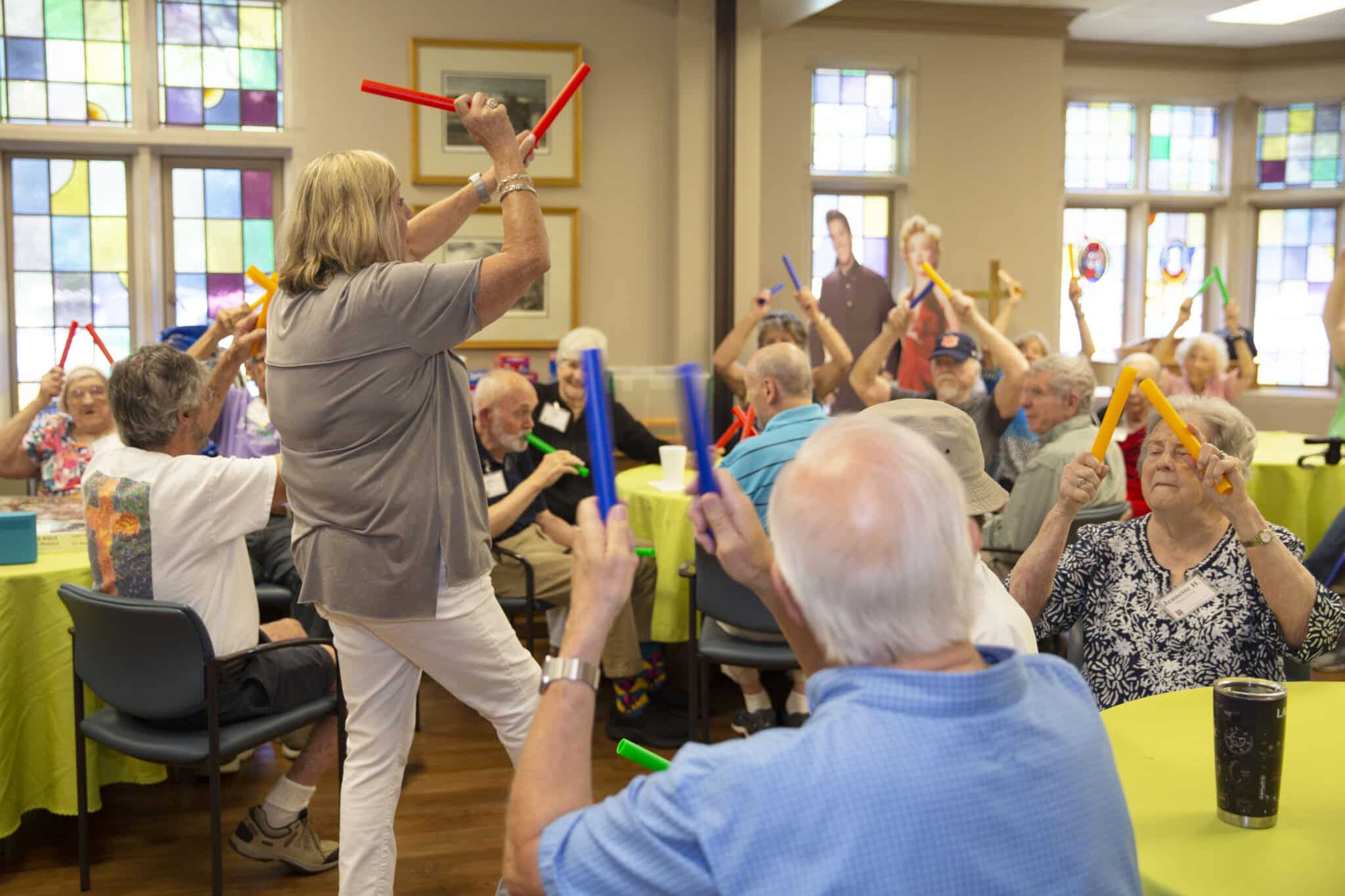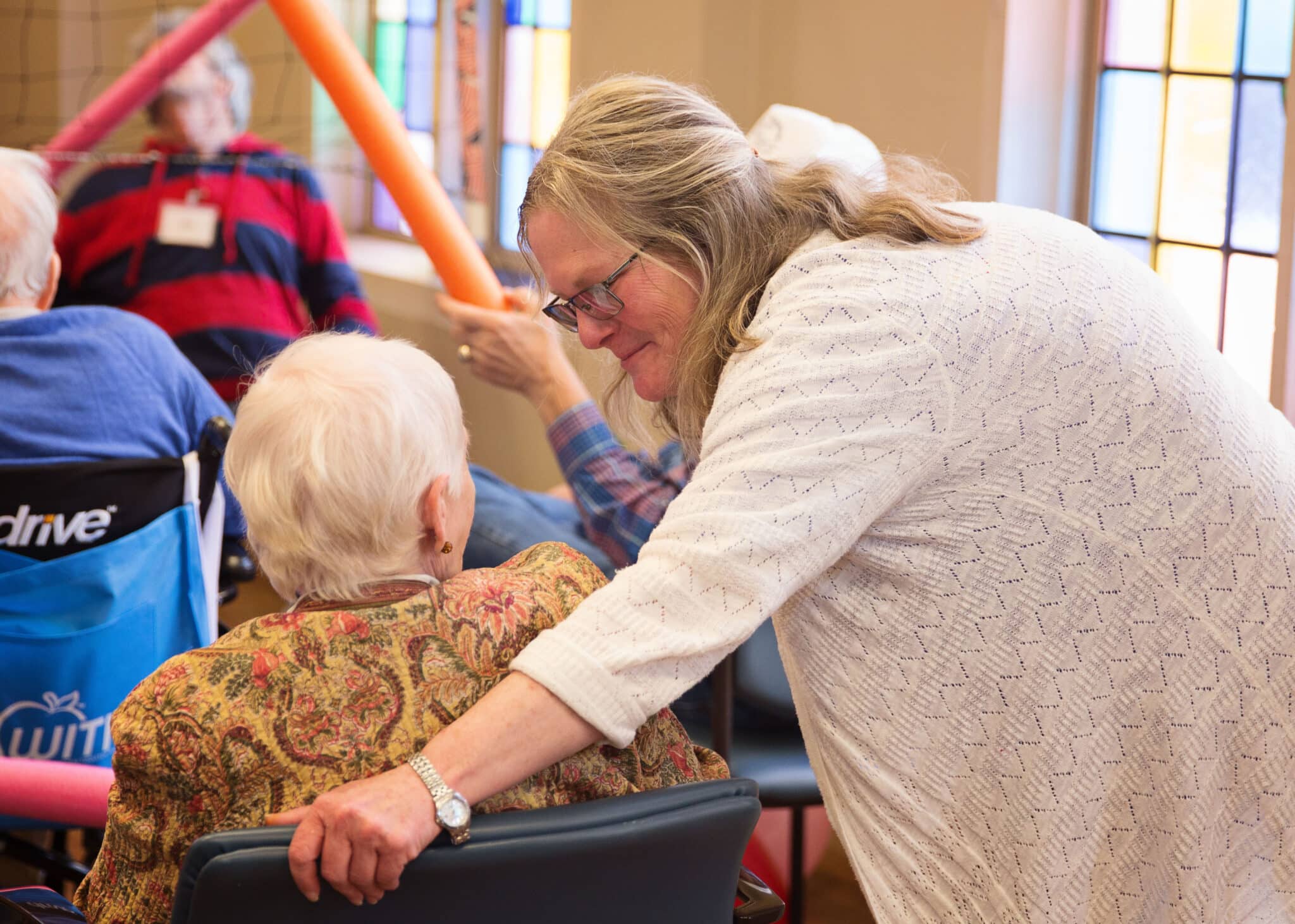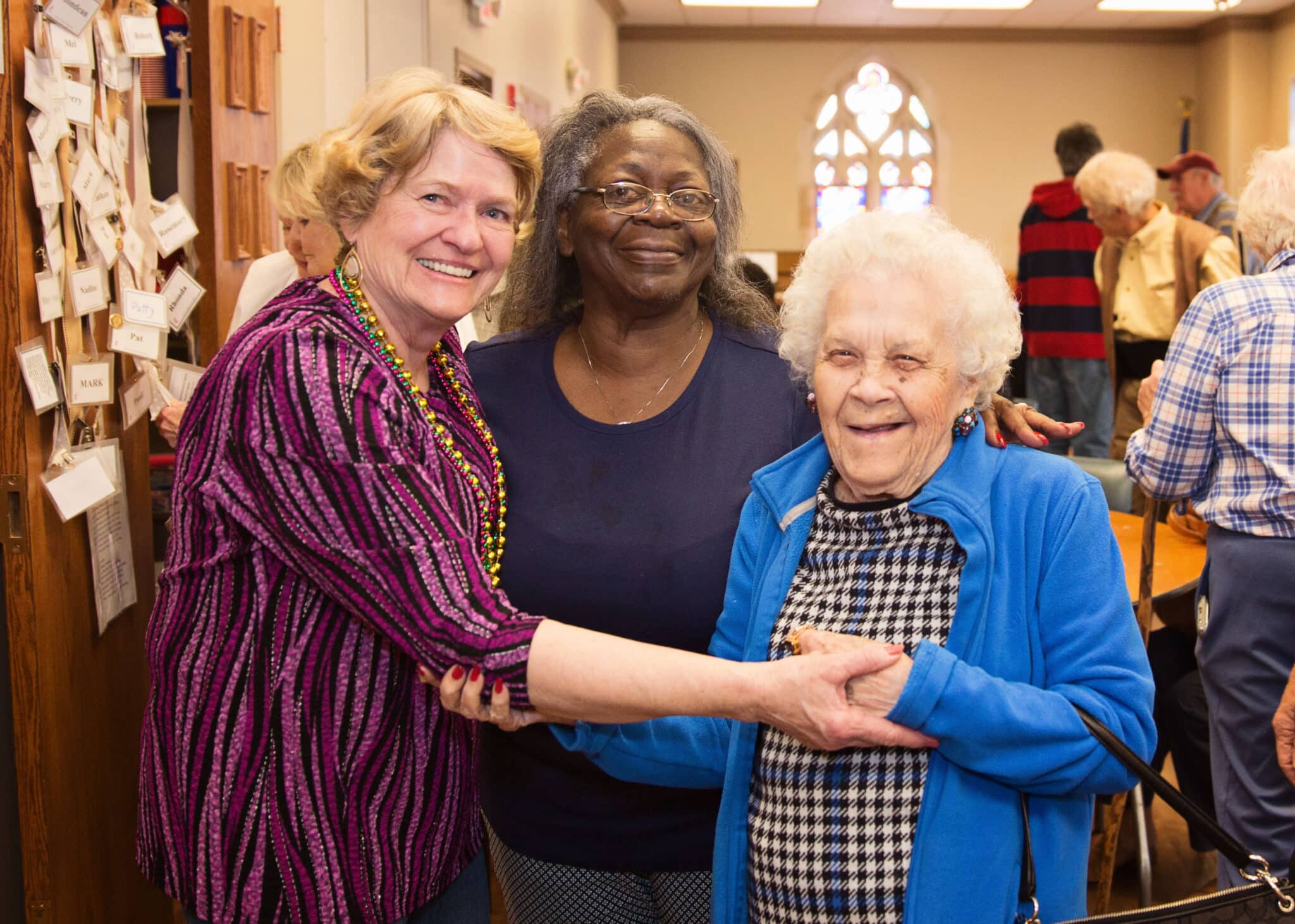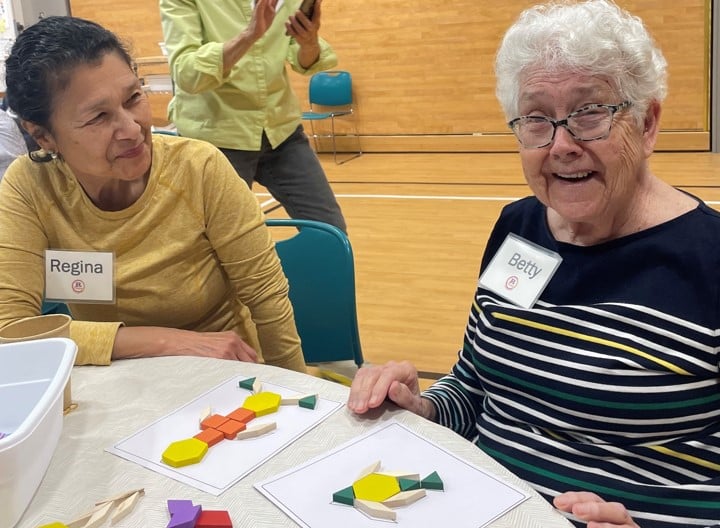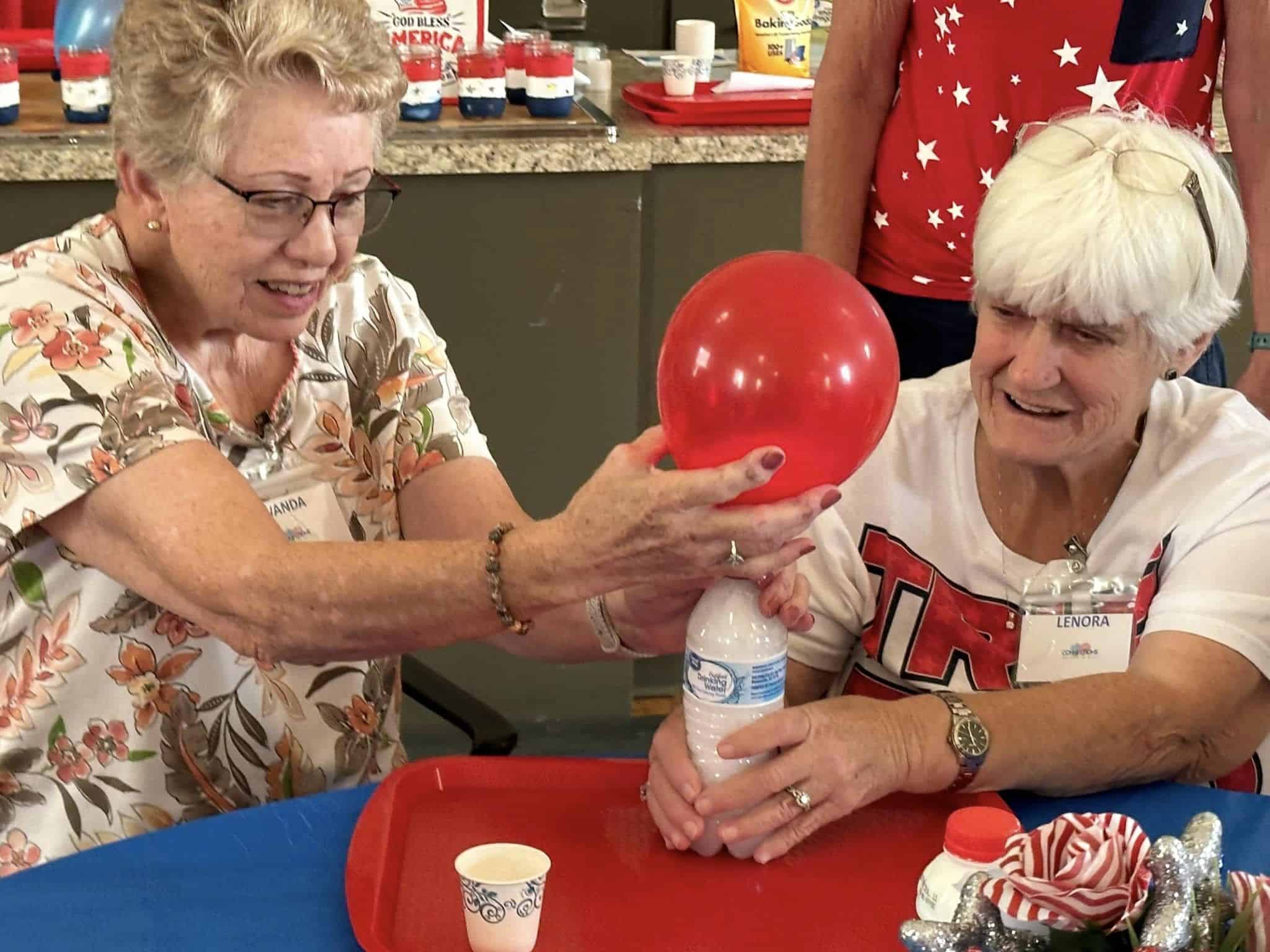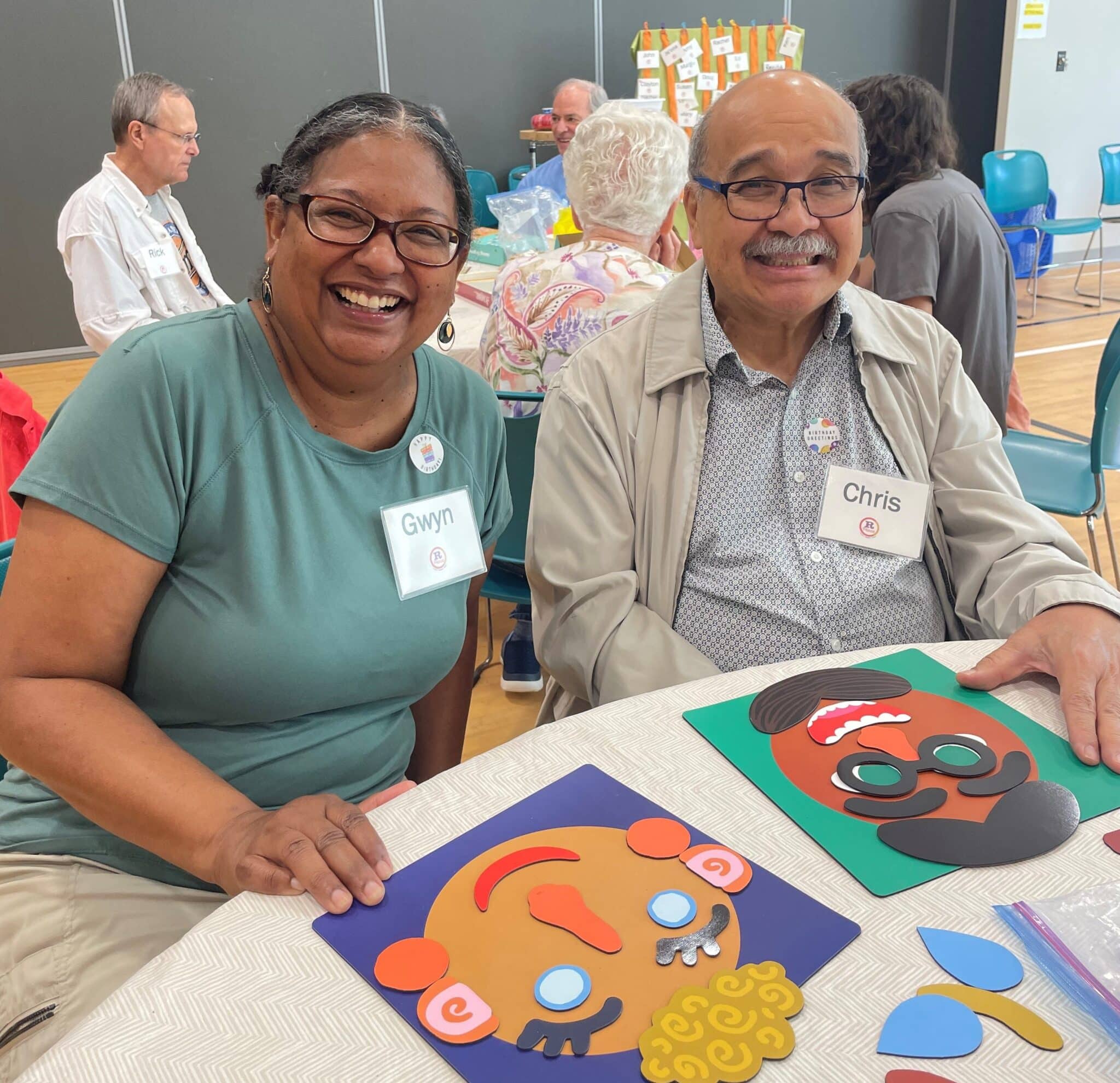The RFA Model
The Need to Reclaim Joy
The Respite for All Model
Millions of people in the U.S. are living with a dementia-related illness, and the numbers are increasing. The Respite for All model is an easy to implement program that enables churches and senior service organizations to be part of their community’s response to a growing social need – namely, support and care for individuals living with Alzheimer’s and dementia. The sustainability of the faith-based model is unique because churches provide donated space that is unused during the week – and enlist an army of volunteers seeking to serve in a meaningful way.
The Respite for All faith-based, volunteer model of care differs from other forms of respite models out there because our techniques address isolation, meaning, and purpose in one’s life. The aim is to focus on building a no-label environment where everyone has a purpose, blurring the lines between trained volunteers and those being served. We seek to create an atmosphere of service for everyone involved so those living with memory issues can still find meaning in their day-to-day lives. And volunteers can find renewed purpose in meaningful service.
Respite for All programs are based on a social model of care. Our volunteers have been trained in the social and relational aspects of caring for our friends living with dementia, offering mental stimulation and socialization while developing relationships that fill people up with a sense of well-being. They are not responsible for tasks such as cleaning or bathing, and no medical staff is required because no medical care is given and no medications are passed.
There are one or two paid staff directors per site, and the rest of the team comes in every day for no paycheck. The volunteers bring group energy to providing care at a one-to-one ratio or even two-to-one for four hours. Sustainability is also supported by a modest tuition of $40-$50 per day that ministries set at local level – and that’s still less than the cost of in-home care. In addition, ministries often receive generous donations from their local communities which enables them to not turn anyone away for inability to pay.
Respite for All programs are best suited to the early to middle stages of a diagnosis. To participate, our friends living with dementia must be able to care for their own restroom needs and be comfortable in a large group setting. Ambulation requirements, along with paid care attendants, are decided by local communities.
The RFA model incorporates the theory that we all still have something to contribute. The volunteers find jobs throughout the day to give purpose to our friends. Whether it is greeting people as they come in the door, serving a meal, cleaning up after activities, or simply being a friend to a new person in the group – the volunteers help find a purpose for everyone. Essentially, those with dementia are coming to help someone else as opposed to receiving care for themselves.
Are you ready to begin building a Respite Ministry in your community? We provide the training and support to create a sustainable program. Email [email protected], and she'll guide you through next steps.
Frequently Asked Questions
Do you have questions about the RFA Model? Below are answers to some of the most common questions we are asked. But, if we missed something, please don’t hesitate to get in touch. You can send your message to our Executive Director, Daphne Johnston, by emailing [email protected]. Thank you!
How Do the Finances Work in the Respite for All Model?
Typically, tuition is paid at the end of every month based on the number of days participants attend, and sliding scales or financials aren’t necessary to receive scholarship assistance. The Respite for All Foundation recommends that no one be turned away for financial reasons. Approximately one-third of those participating in the original Montgomery Respite Ministry are on scholarship. Local programs will decide their fee with the direction of RFA.
Does the RFA Model Provide Transportation?
Families are responsible for all transportation to and from their local Respite community.
Does the RFA Model Include Meals?
Yes, the RFA model does include a hot meal shared with participants and volunteers. We recommend that the churches and places of worship secure a caterer, local church kitchen, or civic/Sunday School group to provide prepared meals.
What Are the Hours of Program Operation?
Program operation is highly recommended from 10:00 AM – 2:00 PM. Identifying space that will be useable during these daytime hours is critical in the early decision and planning phases. There are successful programs that share space, but be aware that 1-2 closets are needed for supplies.
How Does the Scholarship System Work?
*Please Note: You will also be eligible for any research RFA provides for local use of grants. For more information, contact Daphne Johnston at 334-440-9911 or by sending an email to [email protected].
